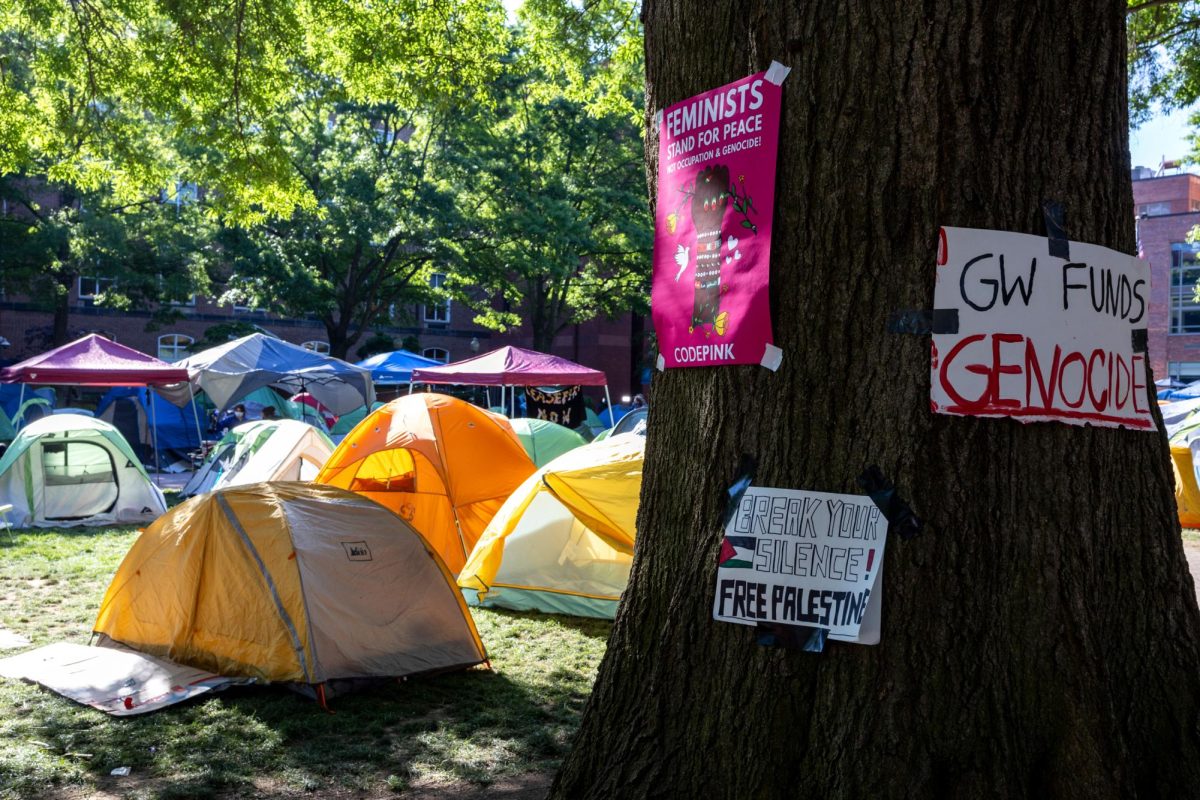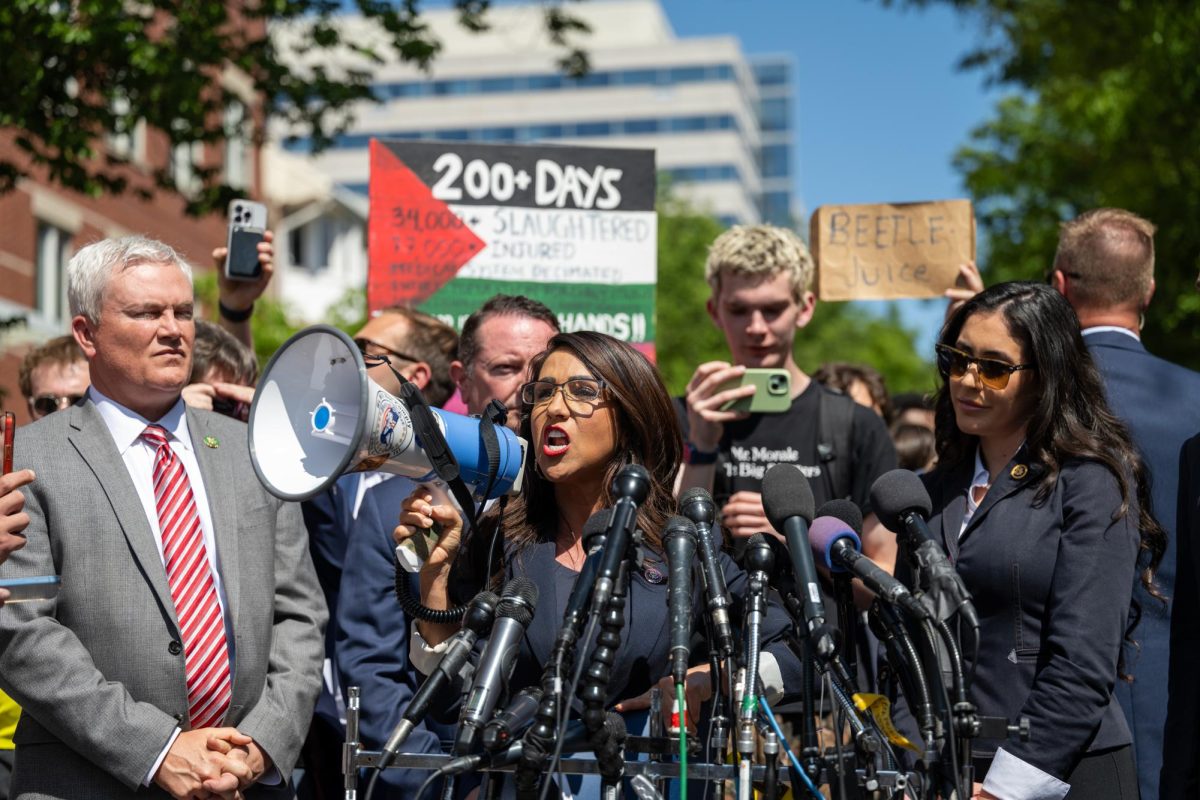When Metropolitan Police Department officers pulled Sam Collins aside, saying he matched the description of a suspect for an on-campus robbery, the senior was angry.
Collins said his anger motivated him to produce a documentary on racial profiling at GW, focusing on University Crime Alerts that offer vague suspect descriptions. The documentary aired Tuesday evening at Funger Hall.
Collins shared other instances where he has been subject to racial profiling at the University, both by the University Police Department and MPD.
He said his experiences have caused him to “hate the environment” he is in.
Part of the frustration with the racial bias he said, was the fear of what other students would think if they saw officers questioning him.
“That would have said a lot about me, even though I didn’t commit that robbery,” Collins said.
Other students shared their experiences with racial profiling at GW at the event, offering their thoughts on the media’s role in perpetuating biases.
Attendants said UPD fails to effectively identify suspects by simply offering general race-based descriptions.
The documentary also featured UPD officers who encouraged students to approach them with issues related to crime alerts and racial profiling. Students at the event said forging relationships with officers could mitigate the problem.
“The [U.S.] Department of Education has said that alerts should include all information that would promote safety, and many factors, including sex, height, weight, race, age, clothing description, scars, marks and tattoos may help to identify a perpetrator,” Darrell Darnell, GW’s vice president for Safety and Security, said. He added that descriptions are based upon information provided by victims and witnesses.
Darnell said individuals who feel they have been racially profiled can file a complaint or speak with him personally.







